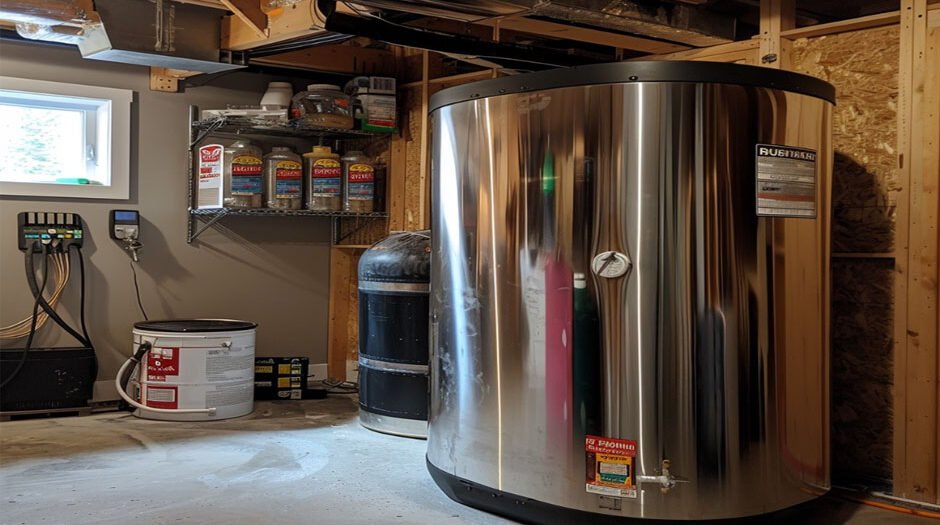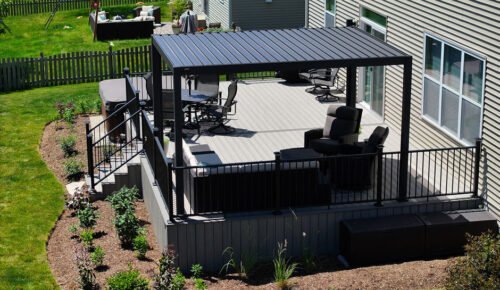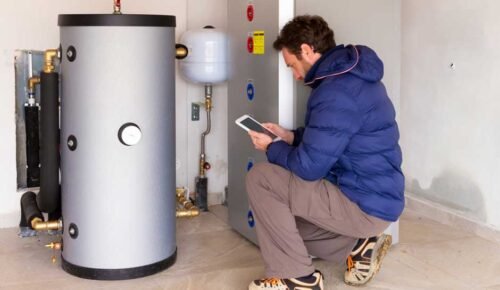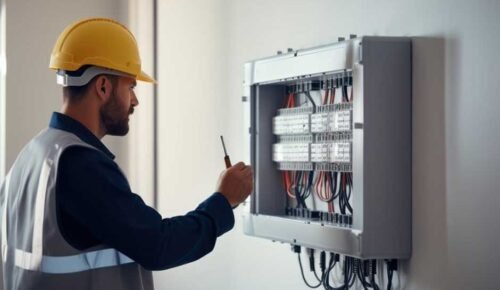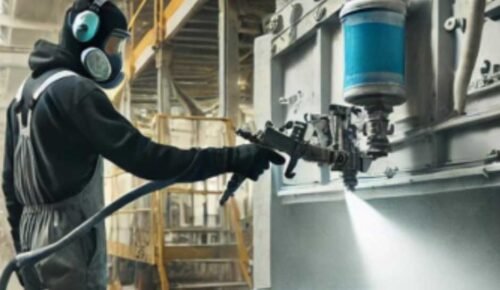As a homeowner or commercial property manager in Colorado, you rely on your water heater for everyday activities, from taking warm showers to washing dishes. However, like any appliance, water heaters have a lifespan, and knowing when to replace them is crucial for maintaining comfort and efficiency. This article outlines the key signs that indicate it’s time for a water heater replacement, ensuring you make informed decisions about your property.
1. Age of the Water Heater
One of the most significant indicators of whether to consider a water heater replacement is the age of your unit. Traditional tank water heaters typically last about 10 to 15 years, while tankless models can last longer, up to 20 years with proper maintenance. If your water heater is nearing the end of its expected lifespan, it’s wise to start considering replacement options. Frequent issues with your unit may suggest that the age is affecting its efficiency, prompting you to explore alternatives like tankless water heater replacement.
For example, if you installed your unit more than a decade ago and have begun experiencing problems, it may be time to consult a professional about a new installation. The investment in a newer model can provide better energy efficiency and improved performance.
2. Insufficient Hot Water
If you find yourself constantly running out of hot water or experiencing inconsistent temperatures, your water heater may be failing. This issue is especially common in households with multiple users who rely on hot water at the same time. If you frequently need to schedule hot water heater repair or find that your current model cannot keep up with your demands, it may be time to invest in a more efficient model.
A common scenario is when you take a shower, and halfway through, the water turns cold. This indicates that your unit is struggling to maintain a consistent supply. Upgrading to a larger tank or a more efficient model can resolve this issue and enhance your overall comfort.
3. Leaks and Water Damage
Visible leaks around your water heater can be a serious sign that replacement is necessary. Water pooling near the base of the unit or dampness on the floor indicates potential tank failure or damaged pipes. Addressing leaks promptly is crucial, as they can lead to significant water damage and mold growth in your property. If leaks are present, consider an emergency water heater replacement to prevent further damage.
Additionally, even small leaks can result in increased water bills and the potential for major repairs down the line. If you notice signs of water damage in the surrounding area, such as discoloration on walls or ceilings, act quickly to address the issue.
4. Unusual Noises
If your water heater starts making unusual noises, such as rumbling, popping, or hissing, it may signal sediment buildup or internal damage. Over time, minerals and sediment can accumulate at the bottom of the tank, leading to decreased efficiency and unusual sounds. While some noises may indicate the need for repair, persistent loud noises often point toward the need for a replacement, especially if the unit is older.
Ignoring these sounds can result in further complications, including complete tank failure. It’s advisable to consult a professional if you hear anything out of the ordinary, as they can assess whether a repair or a full replacement is the best course of action.
5. Rusty or Discolored Water
The quality of your hot water can also be a telling sign. If you notice rusty or discolored water coming from your taps, it may indicate corrosion inside your water heater tank. Rusty water not only affects the aesthetic quality of your water but can also pose health risks. If flushing the tank does not resolve the discoloration, it’s advisable to consider a water heater installation for a cleaner and safer water supply.
In some cases, you may notice that only the hot water is affected. This is a strong indication that your water heater is deteriorating. If your taps produce brown or reddish water, it’s essential to act promptly to avoid any potential health hazards.
6. Rising Energy Bills
An increase in energy costs can indicate that your water heater is working harder than it should. If your energy bills are rising without an apparent reason, it may be due to an inefficient unit consuming more power to heat water. Investing in a new, energy-efficient model can significantly reduce your utility costs over time, making electric water heater replacement or gas water heater installation worthwhile considerations.
Consider scheduling an energy audit for your home. A professional can help identify inefficiencies and suggest replacements that will save you money in the long run. This proactive approach can lead to substantial savings on your monthly bills.
7. Frequent Repairs
If you find yourself calling for repairs more frequently, it may be a sign that your water heater is reaching the end of its life. Continuous repairs can add up quickly and may exceed the cost of a new unit. Weighing the cost of ongoing repairs against the investment in a replacement can help you make an informed decision about the longevity of your appliance.
It’s not unusual for an older unit to require multiple repairs within a year. If this is the case, it’s time to consult with a plumbing professional to discuss the benefits of investing in a new model. They can provide insights on the best options based on your specific needs.
8. Water Heater Maintenance Issues
Regular maintenance is key to extending the life of your water heater. If your unit has missed several maintenance checks or has recurring issues, it may be time to consider a replacement. Neglecting maintenance can lead to significant problems down the line, so staying proactive is essential for efficient operation.
Set a schedule for routine inspections and maintenance to prevent issues from escalating. This not only helps prolong the life of your unit but also ensures optimal performance, keeping your home comfortable year-round.
Conclusion
Being aware of the signs that indicate it’s time for a water heater replacement can help you avoid unexpected issues and ensure a steady supply of hot water in your home or business. Regularly evaluating your unit’s performance and age, as well as being mindful of unusual noises, leaks, and water quality, will empower you to make informed decisions regarding your water heating needs.
Investing in a new water heater not only improves your comfort but can also lead to enhanced energy efficiency and reduced utility bills. For more information on how to replace or install a new water heater, feel free to reach out to a reliable plumber in Colorado.
For more details on water heater replacement, visit Spotless Plumbers.
